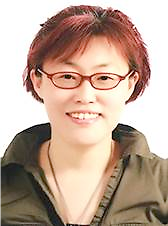Seminar "Protein Diffusion and Kinetics in Low Electric-field Frequency Modulations" Kyongok Kang

Date
Location
Description
Micro/Bio/Nanofluidics (Shen) Unit would like to invite you to the seminar by Prof. Kyongok Kang on December 3 (Tuesday).
----------------------------------------------------------------------
Date: Tuesday, December 3, 2019
Time: 14:00-15:00
Venue: D015 (Level D, Lab 1)
----------------------------------------------------------------------
Speaker:
Prof. Kyongok Kang
Forschungszentrum Juelich
Title:
Protein Diffusion and Kinetics in Low Electric-field Frequency Modulations
Abstract:
Protein aggregation is often problematic in broad aspects of causing medical concerns; especially the conformational changes are consequential loss of functionality. Few examples are known for motor neuronal tau-protein misfoldings and instability of lysozyme variants of amyloid fibrillogenesis in the general neurodegenerative diseases (or disorders). Most functional protein structures keep their unique shape and positions with the charged residues, engaged with the hydrophobic backbones to make interesting protein-protein interactions. In addition, the amphipathic parts of protein drive the proteinsolvent interactions. These can be then effectively explored by the effect of ions and the concentrations of proteins for different types of salts. To understand such complicated protein-protein interactions, several contributions of interactions (as van der Waals, electrostatic/kinetic, and electroosmotic flow hydrodynamics) are required to describe three phase behaviors and kinetics of the protein aggregates. The long-time self-diffusion coefficient is related through the Einstein relation to an effective friction coefficient, determined by direct interactions and hydrodynamic interactions in the case of a charged sphere in charged rod-network [1]. Also slow dynamics are exhibited for charged rod-glasses and quantified with both image-time correlation and dynamic light scatterings, by varying the higher concentrations [2-3].
In this talk, the external weak AC electric fields (of sinusoidal waves) are employed to probe the field indicted phase transitions and possible kinetics of protein aggregations that to be distinguished from the equilibrium states of protein mixtures. As an example, the DNA-virus bacteriophage fd suspensions are explored and well demonstrated as the electric-field induced phase-transitions and dynamical states [4-
7]. Also field induced critical phenomena is discussed [8]. There the effective interactions of those charged rod-rod interactions are expressed with the [9-10]. As the novel result of comparison and semitheoretical theory, the time-dependent effective electrostatic Debye screening parameter is obtained explicitly for the applied frequency for the given concentrations of charged rods. Also semiempirical
theory is developed to mimic the collective dynamics of field-induced polarization under low external AC electric fields [11-12]. Therefore, in general, the different size effect of electric field-induced critical phenomena can be explored further.
References:
1. K. Kang, A. Wilk, A. Patkowski, and J. K. G. Dhont, “Diffusion of spheres in isotropic and nematic networks of rods: electrostatic interactions and hydrodynamic screening.”, J. Chem. Phys. 126, 214501, 2007.
2. K. Kang and J. K. G. Dhont, “Glass transition in suspensions of charged rods: Structural arrest and texture dynamics”, Phys. Rev. Lett. 110, 015901, 2013.
3. K. Kang, Soft Matter, “Soft-mode of charged chiral fibrous viruses (fd)”, Soft Matter, 12, 6385-6399, 2016.
4. K. Kang, and J. K. G. Dhont, “Electric-field induced transitions in suspensions of charged colloidal rods”, Soft Matter, 6, 273, 2010
5. K. Kang, “Charged fibrous viruses (fd) in external electric fields: dynamics and orientational order”, New Journal of Physics, 12, 063017, 2010.
6. K. Kang, “Diffusivity in an electric-field-induced homeotropic phase of charged colloidal rods”, Europhys. Lett. 92, 18002, 2010.
7. K. Kang, “Image time-correlation, dynamic light scattering and birefringence for the study of the response of anisometric colloids to external fields”, Rev. Sci. Instrum. 82, 053903, 2011.
8. K. Kang and J. K. G. Dhont, “Criticality in a non-equilibrium, driven system: Charged colloidal rods (fd-viruses) in electric fields”, Eur. Phys. J. E., 30, 333, 2009.
9. J. K. G. Dhont, and K. Kang, ”Electric-field-induced polarization and interactions of uncharged colloids in salt solutions”, Eur. Phys. J. E., 33, 51-68, 2010.
10. J. K. G. Dhont, K. Kang, ”Electric-field induced polarization of the layer of condensed ions on cylindrical colloids”, Eur. Phys. J. E. 34, 40, 2011.
11. K. Kang and J.K.G. Dhont,” An electric-field induced dynamical state in dispersions of highly charged colloidal rods: Comparison of experiment and theory”, Colloid. Polym. Sci. 293, 3325-3336, 2015.
12. K. Kang and J.K.G. Dhont,” An electric-field induced dynamical state in dispersions of highly charged colloidal rods: Comparison of experiment and theory”, Colloid. Polym. Sci. 293, 3325-3336, 2015.
Biography:
Dr. K. Kang is a permanent researcher in the Soft Condensed Matter group (ICS-3) in the Forschungszentrum Jülich, since 2007, after receiving her PhD in Physics at Kent State University, 2003, USA and the postdoctoral fellowship in Institute of Complex System, at the Helmholtz Research Center in Jülich, Germany (2003-2007). She is investigating both non-equilibrium phase transitions (in electric field and shear-flow) and the equilibrium orientation dynamics of interacting charged chiral DNA-virus rods, as well as slow dynamics and glass phenomena. She developed several instrumentations, such as image-time correlation, small angle dynamic light scattering, and an electric birefringence setup, to investigate novel non-equilibrium phases/states. Dr. K. Kang is a member of the European networks SoftComp (a FP7 network of excellence) and EUSMI (a horizon 2020-infrastructure project). She is currentlyorganizing CECAM discussion workshops, in cooperation with the Technical University of Vienna, on “Charged species in bulk and at interfaces”. Her current research interests focus on the interactions of charged fibrous viruses, and protein aggregation in electric fields, and engineering functional soft-matter composites. Dr. Kang plays a supporting role of the Verein Koreanischer Naturwissenschaftler und Ingenieure (Vekni), and participates regularly in the annual meeting of ADeKo (Alumni network of Germany-Korea), and Europe-Korea Conference (EKC) for Science and Technology (since 2016).
Host:
Prof. Amy Shen
Subscribe to the OIST Calendar: Right-click to download, then open in your calendar application.



